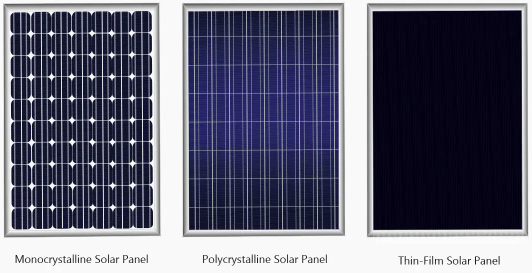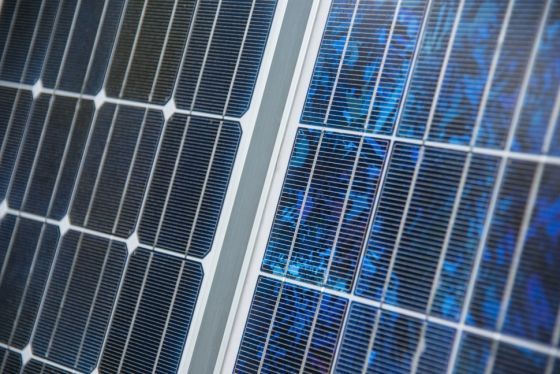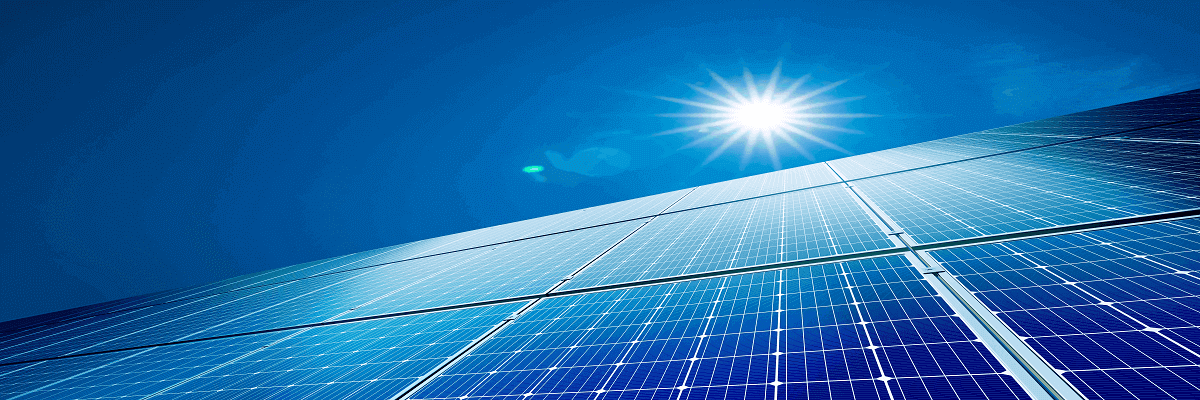While all solar panels are designed to turn sunlight into electricity, there are a number of types and brands of solar panels on the market. This guide reveals the different types of solar panels available in Australia, which ones are considered the most efficient for panel power output, as well as the top brands in the industry.
If you’ve already got your solar panels sorted, then be sure to check out our accompanying guide on solar inverters.
On this page:
Advertisement
What are the different types of solar panels?
There are three main types of commercially available solar cells, which when combined, form a solar panel. These are monocrystalline, polycrystalline and thin film.

Monocrystalline
These solar cells are sliced up from larger silicon crystals, giving them a uniform blue or black appearance. Monocrystalline cells generally have the highest efficiency, as only a single crystal is required to make them. However, they have curved corners which result in wasted space when the cells are combined to form a solar panel. As a result, monocrystalline panels are only slightly more efficient than polycrystalline. This solar panel type also tends to be more expensive.
Polycrystalline
Polycrystalline cells are not cut from the same crystal; instead, they are created by pouring silicon into models, then cutting that silicon into thin wafers. The result is a less pure, but perfectly square solar cell. While polycrystalline cells tend to be less efficient, there is less space wasted when they’re combined to form a panel. As a result, they are only slightly less efficient than monocrystalline panels, but much cheaper.
Thin film
Thin film solar panels are created from a different process entirely. Rather than creating or cutting cells from silicon crystals, thin film panels are made by spraying a layer of silicon onto a surface. These panels are heavier and much less efficient compared to monocrystalline and polycrystalline panels, however they’re quite cheap to produce.
Which solar panel type is the best?
Monocrystalline solar panels are considered more popular for rooftop solar installations. This is because these types of panels are generally more efficient than polycrystalline or thin film solar panels. However, the increased cost of these panels in comparison can put off more budget-conscious buyers.
In terms of what may be the best panel type for your home, this will depend entirely on personal preference, particularly in terms of visual aesthetics. For example, you may prefer a sleek, uniform-coloured panel typical of the monocrystalline solar panel (below left), or a colourful patchy panel with smaller gaps between cells of the polycrystalline solar panel (below right).

Compare solar plans
Here are some of the cheapest solar-specific deals from the retailers on our database. These costs are based on the Ausgrid network in Sydney but prices will vary depending on your circumstances. We show one product per retailer, listed in order of lowest price first. Annual price estimates assume general energy usage of 3900kWh/year for a residential customer on a single rate tariff. Price estimates exclude solar feed-in tariff credits. These are products from referral partners†. Our database may not cover all deals in your area, and please check retailer websites for up to date information.
Here are some of the cheapest solar-specific deals from the retailers on our database. These costs are based on the Citipower network in Melbourne but prices will vary depending on your circumstances. We show one product per retailer, listed in order of lowest price first. Annual price estimates assume general energy usage of 4000kWh/year for a residential customer on a single rate tariff. Price estimates exclude solar feed-in tariff credits. These are products from referral partners†. Our database may not cover all deals in your area, and please check retailer websites for up to date information.
Here are some of the cheapest solar-specific deals from the retailers on our database. These costs are based on the Energex network in Brisbane but prices will vary depending on your circumstances. We show one product per retailer, listed in order of lowest price first. Annual price estimates assume general energy usage of 4600kWh/year for a residential customer on a single rate tariff. Price estimates exclude solar feed-in tariff credits. These are products from referral partners†. Our database may not cover all deals in your area, and please check retailer websites for up to date information.
Here are some of the cheapest solar-specific deals from the retailers on our database. These costs are based on SA Power network in Adelaide but prices will vary depending on your circumstances. We show one product per retailer, listed in order of lowest price first. Annual price estimates assume general energy usage of 4000kWh/year for a residential customer on a single rate tariff. Price estimates exclude solar feed-in tariff credits. These are products from referral partners†. Our database may not cover all deals in your area, and please check retailer websites for up to date information.
What is the best brand of solar panels in Australia?
When shopping for solar panels, you will likely see solar panel ‘Tiers’, with Tier 1 representing the best panels and Tier 3 being an inferior product.
There are some important things to note when it comes to the tiered system. Firstly, there’s no single universal ranking system. Several organisations, usually banking and financial analysis firms, rank solar panel brands individually. While these organisations generally share a similar assessment, when someone tries to sell you a ‘Tier 1’ panel, it’s worth questioning how it was ranked and by whom.
Secondly, the tier system usually refers to the investment potential of a brand of solar panel and not the actual quality of its solar panels. The tier rankings often take account for large scale projects that the company has supplied solar panels for, the manufacturing capacity of the company and its level of research and development. To even be considered as a Tier 1 brand, a company must also be vertically integrated (produce panels from start to finish) and have been operating at least five years.
Some of the brands you will most commonly see appear in Tier 1 solar panel lists include:
- Aiko
- Canadian Solar
- Jinko
- LONGi
- REC Group
- Risen Energy
- Suntech
- Trina Solar
Tier 1 brands are usually a safe bet for quality solar panels, but you should have a healthy skepticism when someone tries to sell you panels on that fact alone. To ensure you’re making a good purchase, be sure to ask questions about the panels’ life cycle, efficiency and warranty.
You might also be interested in:
How to find a good solar energy provider
Once you’ve found a great deal on quality solar panels for your home, all you need is an energy retailer that will help maximise your investment. Some retailers have better products for solar customers than others and signing up to the right deal could help you save hundreds on electricity. Start comparing with Canstar Blue’s solar customer satisfaction ratings using the link below.
Original reporting by Kelseigh Wrigley
Image Source: bombermoon/Shutterstock




Share this article